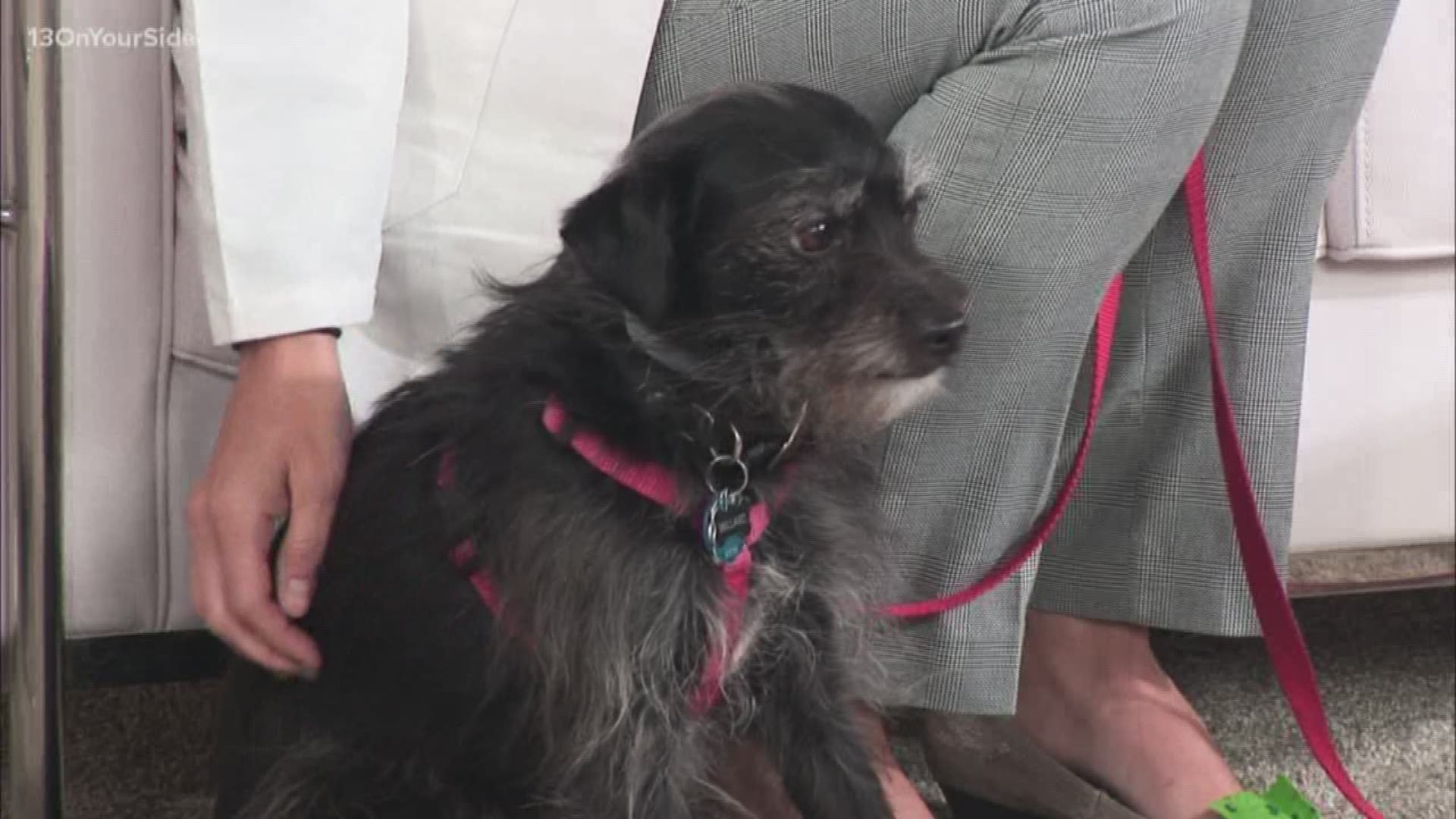GRAND RAPIDS, Mich — Similar to humans, cats and dogs require regular dental maintenance to avoid diseases and ensure a lifetime of strong teeth and handsome smiles.
Dr. Medora Pahsmakova, explains the basics of lifelong dental care for pets: Brushing your pet’s teeth is the most important step in lifelong dental health.
As humans, we brush our teeth to remove plaque before it turns to tartar, freshen our breath and keep our teeth and gums strong and healthy. You may not realize that your pet has very similar needs. To learn how to brush your pet’s teeth, contact your primary veterinarian or a veterinary dentist.
Start Brushing Your Pet’s Teeth Early.
A lifetime of excellent dental health begins when your pet is very young. Even though kittens and puppies lose their baby teeth, it is important to start brushing their teeth and feeling their teeth with your fingers at a young age to help acclimate them to routine dental care. You want to make brushing a positive experience, so reward your pet with healthy treats after every home brushing session.
Dental visits with your family veterinarian should begin when your pet is about six months old. During the first visit, your veterinarian will count your puppy or kitten’s teeth, check for impacted teeth and look for medical concerns such as cysts or discoloration.
Annual Dental Cleanings.
Starting at age one, your pet’s teeth should be cleaned by your primary veterinarian on an annual basis. Because small dogs have different facial structures and an increased likelihood of having crowded teeth, they may even require professional cleanings twice a year.
The purpose of dental cleanings for pets is to remove tartar that is harmful to their teeth and gums and also to check for medical concerns. Many harmful oral diseases can be detected early during annual dental cleanings.
Professional cleanings are thorough medical procedures, and therefore, they can be fairly costly. However, these cleanings are effective in preventing many oral diseases and complications that can arise later in life and require expensive treatment.
Signs of Dental Issues.
Because pets tend not to show when they are experiencing oral pain, signs of dental problems are not always obvious. If you notice bleeding, chipped or discolored teeth or sensitivity, contact your primary veterinarian because there is likely a dental complication.
In some cases, your pet may need to see a veterinarian who is board-certified in veterinary dentistry and oral surgery, like those at certain BluePearl hospitals. At BluePearl, the common oral concerns we see are periodontal disease, abscessed teeth or tooth resorption in cats. These illnesses are much less likely to happen in pets who receive regular brushing and cleaning sessions.
Fractured Jaws.
The most common injuries we see are fractures of the teeth or jaws. The leading causes of fractured teeth are chewing of bones, pig ears, cow hooves, elk antlers, pizzle sticks and other chew toys.
Fractured jaws in pets are typically a result of trauma or dog fights. If you notice that your dog’s tooth fell out from a traumatic event, do not clean or handle the tooth. Place the tooth in milk and bring both your dog and the tooth directly to an emergency animal hospital, because the tooth can likely be put back in if a veterinary dentist is present.
Oral Cancer.
Another major concern that affects lifelong health is oral cancer. Because complete prevention may not be possible, the key to minimizing the risks of oral cancer is early detection.
At an annual cleaning, your pet’s dentist or veterinarian will look for signs of oral cancer or tumors. While there are often no signs of oral cancer to the untrained eye, signs such as subtle swellings, chattering teeth or strong, foul breath may occur. If you think your pet may have oral cancer, contact your veterinarian immediately. In many cases, if caught early, many oral cancers are treatable.
So what about treats? There are many treats and products on the market that are advertised to help maintain your pet’s dental health. When choosing these treats, it is important to look for the seal of approval from VOHC, the Veterinary Oral Health Council. These treats are proven to minimize plaque and improve dental health.
It also is important to avoid giving your dog treats that can cause dental trauma. Bones, other animal products (such as antlers and ears, and synthetic bones can be a major cause of broken teeth and jaws in pets, particularly dogs. If you still want to provide your pet with a chewy treat that provides oral stimulation, consider a Kong or other indestructible toy. Fill the toy with soft, safe foods like peanut butter or melon. You can freeze the Kong to make it last even longer.
The Bottom Line?
Dental care is important to pets, and their brushing and cleaning requirements are similar to your own. Excellent lifelong dental health is the result of properly cleaned teeth and care from a trusted veterinarian.
“Find a veterinarian who you trust to provide cleanings and treatment for your dog’s teeth,” says Dr. Pashmakova. “When it comes to dental health, if it doesn’t seem right for you, it’s probably not right for your dog.”
To learn more about lifelong dental health, contact your primary veterinarian.
►Make it easy to keep up to date with more stories like this. Download the 13 ON YOUR SIDE app now.
Have a news tip? Email news@13onyourside.com, visit our Facebook page or Twitter.

